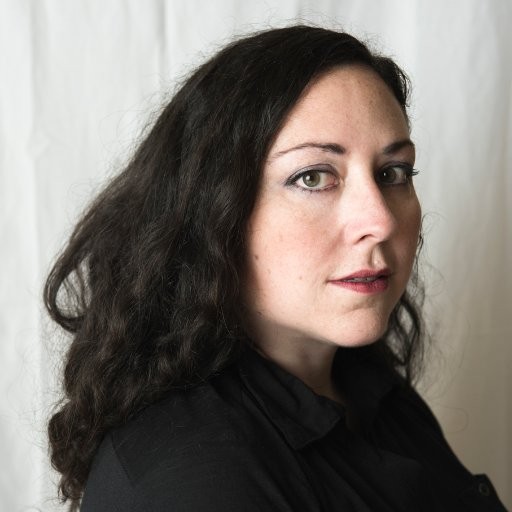by Keaton Gaughan
 Leni Zumas, author of the upcoming fiction novel Red Clocks (selected for Publishers Weekly’s “Top 10 Literary Fiction” list), will be visiting campus later this month as part of the University of Portland’s 2017-2018 Readings and Lectures Series. Her reading will be November 15th at 7:30pm in the campus bookstore.
Leni Zumas, author of the upcoming fiction novel Red Clocks (selected for Publishers Weekly’s “Top 10 Literary Fiction” list), will be visiting campus later this month as part of the University of Portland’s 2017-2018 Readings and Lectures Series. Her reading will be November 15th at 7:30pm in the campus bookstore.
Zumas teaches in the MFA creative writing program at Portland State University. She is also the author of the story collection Farewell Navigator, and the novel The Listeners, which was a finalist for the Oregon Book Award. In her work, Zumas approaches and examines the female experience on both a deeply personal and a broader, more universal level. Her words, strung together with purpose and precision, flow effortlessly across the page. I had the pleasure of conducting an interview with Leni Zumas. You can read our exchange below.
KG: To start, I’m interested to hear a bit about your new novel Red Clocks in your own words. Would you mind telling me about the novel?
LZ: It’s a book that follows the interconnected lives of five women. One is an Arctic explorer in the 19th century; the others live on the Oregon coast, present day. I’m very interested in bonds among women—friendship, competition, romance, caregiving, mentorship, sex, political alliance—and I wanted to dig into the complexity of these bonds. The world of Red Clocks closely resembles our own, except that there’s a new Constitutional amendment that gives full human rights to embryos at the moment of conception, which means abortion is outlawed, as are certain types of fertility treatment.
KG: Which works of literature have been particularly formative or moving for you as a writer?
LZ: Virginia Woolf is the writer who has most fiercely and enduringly inspired me. I love her mind and her sentences, especially The Waves, To the Lighthouse, and A Writer’s Diary. Toni Morrison and William Faulkner were big influences. Anne Carson’s long poem “The Glass Essay” gave me structural ideas for my first novel, The Listeners. I’ve learned a lot from Grace Paley’s short stories and from W. G. Sebald’s essay–memoir–novel hybrids, particularly Austerlitz and The Rings of Saturn.
More recently, I’ve been awed by Fred Moten’s poems and essays; the nonfiction book Living a Feminist Life by British–Australian scholar Sara Ahmed; John Keene’s story collection Counternarratives; and the novella Why Is the Child Cooking the Polenta by Romanian–Swiss writer (and circus performer) Aglaja Veteranyi.
KG: In a similar vein, was there a particular source from which you derived your inspiration for Red Clocks?
LZ: Oh, lots of sources: my obsessions with polar exploration, witches, and all things nautical; a book on the criminal prosecution of animals; medicinal plants of the Pacific Northwest; and my experience of trying to have a baby on my own. I also researched laws proposed by actual politicians (including Mike Pence and Paul Ryan) to restrict abortion rights, adoption rights, and access to fertility treatments.
KG: I commend you for taking on such a controversial topic like the abortion argument in times where this fundamental right is under attack. Have you experienced any sort of pushback regarding the arguably controversial topic choice?
LZ: I wanted to explore the lived consequences and implications of an abortion ban, but I wasn’t aiming to deliver a verdict. What I love about fiction is that you can plunge into messy, complex, ambivalent situations without needing to decree right and wrong. The reader may ponder right and wrong; she may wonder how she’d choose to act in a situation the characters face; but she isn’t being told what to think. Fiction can dwell in uncertainty. As for pushback: not yet! But the book doesn’t come out until January. Maybe I’ll get some in January. Fingers crossed?
KG: Do you have any advice for aspiring feminist writers?
LZ:
- Don’t try to be pleasing.
- Don’t try to sound like anyone but yourself.
- Be curious about texts outside the canon, texts in translation, texts of and about the margins.
- Acquaint yourself with the writing of women on whose shoulders you stand, including (to name only a few) Angela Davis, Theresa Hak Kyung Cha, Gloria Anzaldúa, bell hooks, Audre Lorde, Adrienne Rich, Kathy Acker, Sei Shōnagon, Grace Paley, Gwendolyn Brooks, Hélène Cixous, Zora Neale Hurston, Eileen Myles, Phillis Wheatley, Virginia Woolf, Susan Sontag, Ntosake Shange, [and] Simone de Beauvoir.
- Put more energy into making your work than into selling it.
Be sure to check out Leni Zumas’ reading in the UP Bookstore on November 15th at 7:30 pm.
*Photo by Sophia Shalmiyev

One thought on “Interview with Leni Zumas”